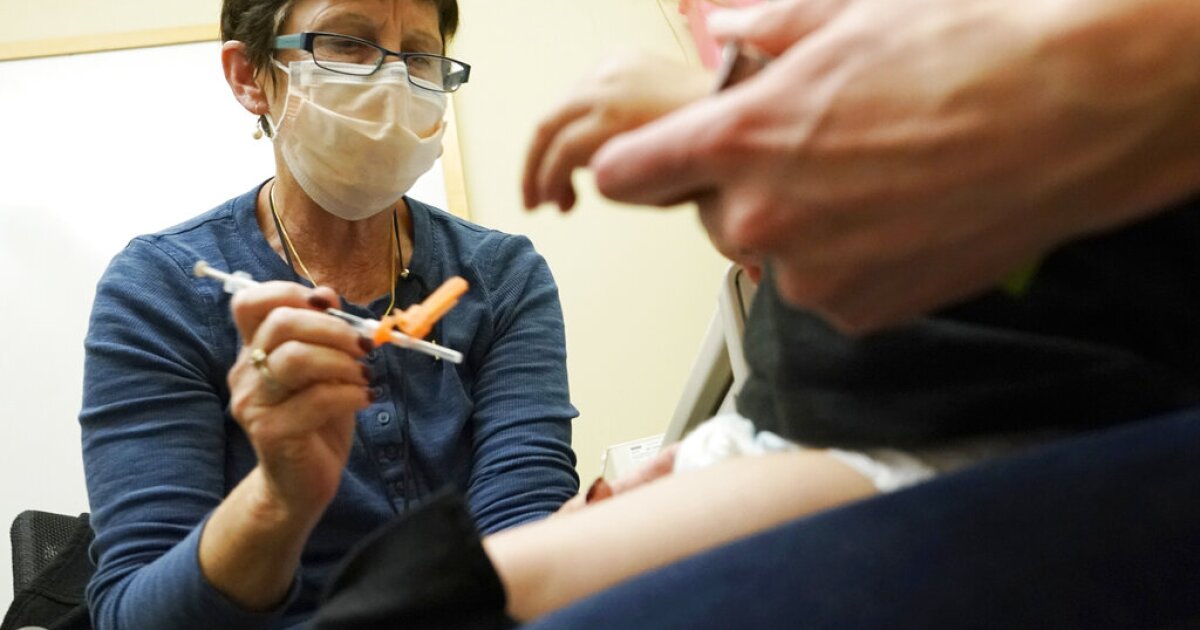

COVID-19 vaccinations for the youngest population in the United States are off to a slow start, thanks to fewer opportunities to receive the shots and hesitancy or a lack of interest among parents to vaccinate their infants and toddlers.
Over two months since the Food and Drug Administration authorized COVID-19 vaccine doses for children ages 6 months through 4 years old, just under 4% of infants under 2 years old and a little over 6% of children 2 to 4 years old have received the first dose. In total, roughly 1 million children under 5 years old have received the first dose. Meanwhile, 30%, or over 8 million, of children between 5 and 11 years old are fully vaccinated, with vaccination rates increasing with each age group, according to Centers for Disease Control and Prevention data.
OMICRON-SPECIFIC BOOSTER TO ROLL OUT IN DAYS AFTER CDC SIGNS OFF
“I think some people are just waiting to see more vaccination of that age group before they decide to vaccinate their child just to make sure that it is safe,” said Dr. Sandra Bonat, a pediatric physician adviser at VIP StarNetwork. “Parents think that because COVID has not been super severe in kids, it’s a relatively mild illness for children, for the most part, they don’t even need to do it. They’re just sort of hesitant to do something that they don’t particularly think is necessary.”
Bonat, who works at mobile vaccination clinics primarily in New York state, said she has heard parents express concerns about the novelty of the vaccine and its long-term side effects, as well as some who believe their child doesn’t need to be vaccinated due to a previous infection.
“We’re trying to educate, to make sure they understand that it is safe, that it is a good thing to do,” said Bonat. “We have had more children be hospitalized through the omicron surge, more of the young children. We have had deaths in children.”
Roughly 1 in 10 parents say they do not believe their child needs to be vaccinated or are not worried about the virus, according to a Kaiser Family Foundation poll conducted in July. CDC data show the vast majority of children in the U.S. have already had or been exposed to COVID-19. In at least 25 states, 80% or more of children between 6 months and 17 years have evidence of a previous COVID-19 infection, according to the latest pediatric antibody seroprevalence survey.
The federal government has also taken a different approach to the administration of vaccinations for young children, for the most part leaving it in the hands of pediatricians and family doctors. Most adult vaccinations, in contrast, are carried out at pharmacies. Most states prohibit pharmacies from administering vaccinations for children under 3.
Bonat said this has presented challenges as a significant portion of the population, especially those in rural communities, may not have a primary care provider or access to one. Community and mass vaccination drives have also scaled down in many cities and states as the pandemic has drawn on and case numbers have dropped.
“One of the problems, especially in this youngest age group, is just that bandwidth, not having the ability to get these kids to get one vaccine, two vaccines, three vaccines, having to take off work, trying to get an appointment at your pediatrician’s office,” said Bonat.
Despite public hesitancy, the CDC and the American Academy of Pediatrics recommend COVID-19 vaccination for those 6 months and older. Moderna’s and Pfizer’s vaccines have been authorized for infants as young as 6 months. For children 6 months to 4 years, Pfizer’s primary series is composed of three doses versus the typical two.
CLICK HERE TO READ MORE FROM THE WASHINGTON EXAMINER
“As we have seen with older age groups, we expect that the vaccines for younger children will provide protection from the most severe outcomes of COVID-19, such as hospitalization and death,” FDA Commissioner Robert Califf said in June. “Those trusted with the care of children can have confidence in the safety and effectiveness of these COVID-19 vaccines.”






